How will Apple’s iPhone 16 fare in China amid declining market share?
Lianhe Zaobao Shenzhen correspondent Daryl Lim speaks with experts and vendors about the prospects of Apple’s upcoming iPhone 16 launch in the Chinese market, which could be impacted by the challenging economic conditions at home and abroad.
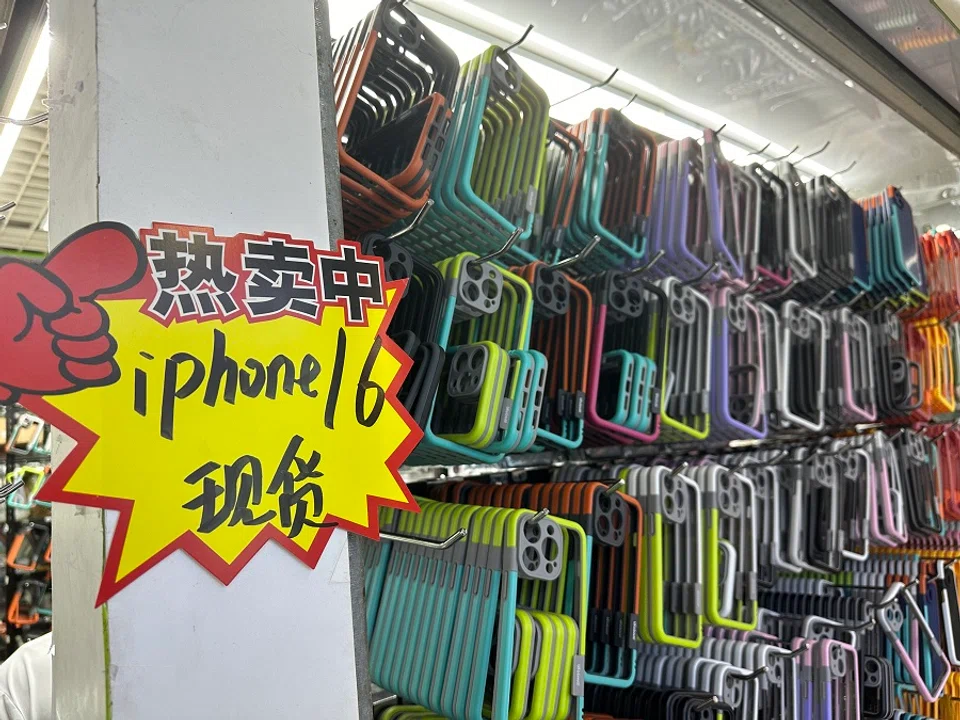
Protective cases for Apple’s unreleased iPhone 16 models have already hit the shelves. However, low pre-order volumes may prompt manufacturers to cut down production, leading to fewer options for mobile accessories on the market compared with previous years.
Although Apple’s autumn launch is still more than a month away, several vendors in Shenzhen’s Huaqiangbei, one of the world’s largest phone accessories hubs, are already stocked with cases for the iPhone 16 series.
Unlike its predecessors, these cases purportedly designed for the iPhone 16 feature a new button on the right side, aligning with rumours that the iPhone 16 series will include a new capture button for the camera.
Cautious amid low expectations
Apple usually strictly enforces secrecy around its unreleased products. But with a supply chain that spans multiple locations, it is challenging to keep that secret airtight.
Amid a competitive business environment, some vendors at Huaqiangbei will jump through all sorts of hoops to obtain the design drawings of the new iPhone and produce moulds in advance to manufacture new phone cases, hoping to seize early opportunities in the market.
During a recent visit to Huaqiangbei, I found that several vendors selling Apple phone accessories were already offering protective cases and screen protectors for the expected four models under the iPhone 16 series. Unlike its predecessors, these cases purportedly designed for the iPhone 16 feature a new button on the right side, aligning with rumours that the iPhone 16 series will include a new capture button for the camera.
Several vendors said that the number of pre-orders for iPhone 16 cases this year is significantly lower compared with the same period in previous years.
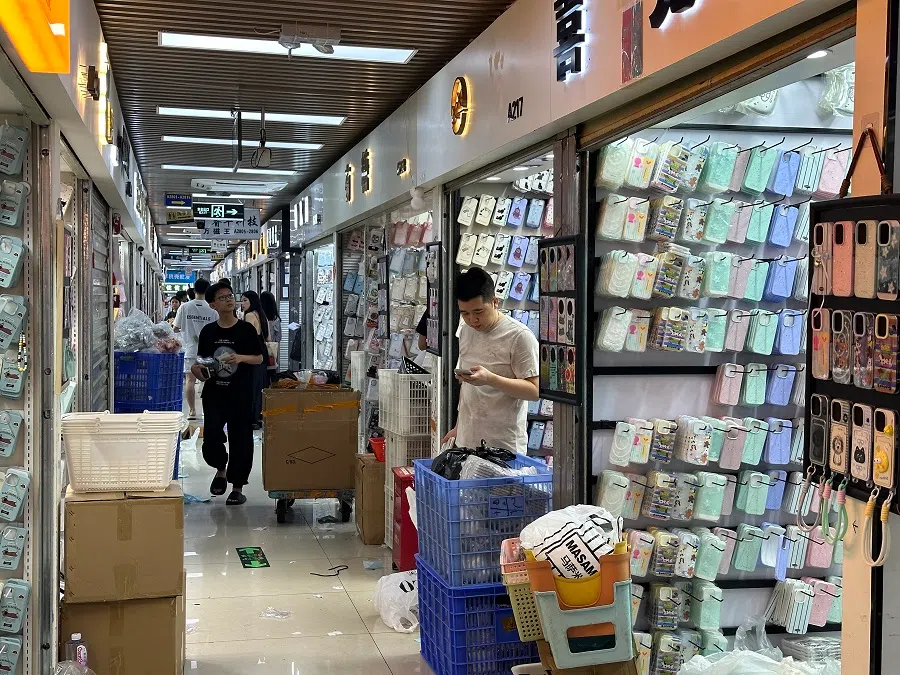
As for how these vendors obtained the design drawings, they claimed to have a “collaborative relationship” with Apple or to have received information from their peers. They added that this “first-mover” operating model has been in place for over a decade. Lianhe Zaobao is unable to verify the veracity of these sources and designs.
Several vendors said that the number of pre-orders for iPhone 16 cases this year is significantly lower compared with the same period in previous years.
Himine (绘美科技), a wholesale supplier of Apple phone accessories at Huaqiangbei for 12 years, primarily focuses on foreign trade, largely exporting to the European and American regions. Chen Fulian, the person-in-charge, told Lianhe Zaobao that the company’s order volume this year dropped by 30% to 40% compared with last year.
She said, “Orders have dropped since the launch of iPhone 15. The decline is expected to be even more pronounced this year. Given the challenging economic conditions abroad, wholesalers in many countries are being more cautious with their orders. We don’t dare to produce too much for fear of building up excess inventory.”
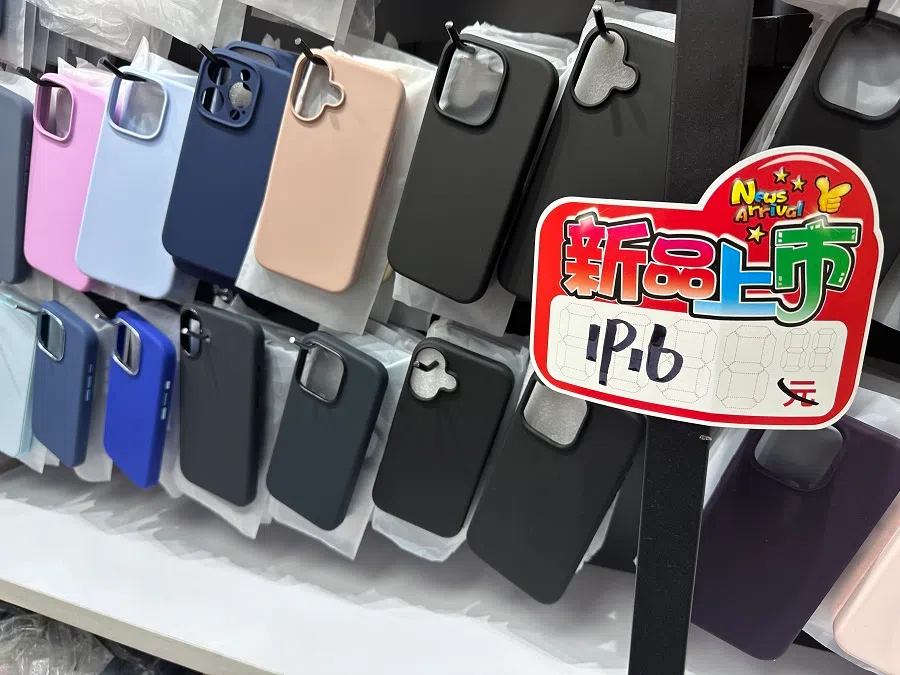
Due to unstable demand, manufacturers are producing fewer types of phone cases. Zhang Renqi, the person-in-charge of Hengsheng Communications (恒生通信), which has been in the phone case manufacturing business for 15 years, said when interviewed that the company currently uses only one mould for each phone model in the iPhone 16 series.
She said, “The cost of creating a mould is relatively high as it is dependent on the material used and the craftsmanship involved. Some could cost up to several thousands or even tens of thousands of RMB. When market conditions were good, vendors could confidently produce a variety of designs to meet demand. Now that orders have reduced, many manufacturers have become more cautious. Most would only launch just one or two designs with some colour variation.”
Holding on to smartphones for longer
Will Wong, senior research manager at technology consultancy International Data Corporation (IDC), pointed out in an interview that the current global economic uncertainty and high interest rates have made consumers more cautious about making large purchases, leading to longer smartphone replacement cycles and reduced demand for new phone cases.
Research firm TechInsights found that the global smartphone replacement cycle reached a record high of 51 months in 2023. This means that on average, consumers are only replacing their smartphones once every four years or so.
Wong said that retailers are feeling the decline in overall consumer demand. He noted, “Under such circumstances, they often purchase a small quantity of phone cases first to gauge customer interest and avoid the risk of having to sell at a significant discount later to clear excess inventory.”
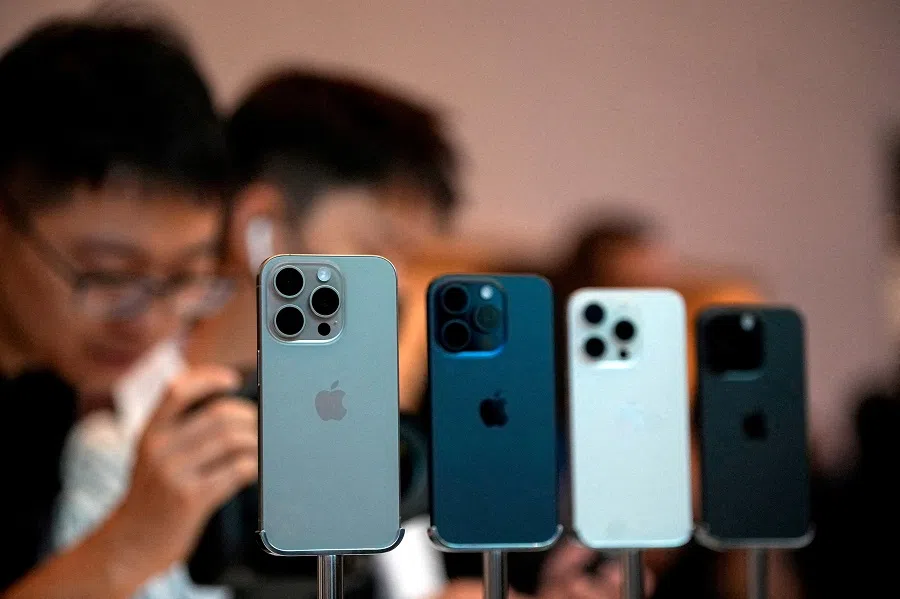
The iPhone accounts for more than half of Apple’s total revenue and is the company’s main source of income. Based on Apple’s fiscal second quarter (January-March) results released in May, iPhone sales fell 10.5% year-on-year to US$45.96 billion, the biggest decline since the pandemic-induced supply chain disruptions in mid-2020.
Research firm Counterpoint found that Apple’s smartphone shipments in China fell 19% in the first quarter of the year, the largest fall since 2020. Its market share also fell to 15.7% from 19.7% a year earlier.
Apple’s plans to boost demand
Faced with multiple pressures, Apple announced in June that it would be integrating artificial intelligence (AI) into its devices and services. It would also collaborate with OpenAI to incorporate ChatGPT technology to enhance its voice control and operating system functions in order to catch up with or even surpass its competitors in the AI race.
Some analysts believe that this move will prompt consumers to upgrade their devices, triggering a new round of intense smartphone replacements.
Wong believes that AI technology is set to be a major highlight of this year’s iPhone 16 series, with the new features especially appealing to loyal Apple users and potentially prompting them to upgrade their phones. However, the average consumer’s awareness of AI capabilities and its value is still limited, which remains a major challenge for Apple.
... if Apple makes a strong move around its AI strategy for iPhones, demonstrating clear use cases, it could accelerate the growth for Apple and revamp demand for iPhones in China. — Nabila Popal, Research Director, IDC’s Worldwide Tracker Team
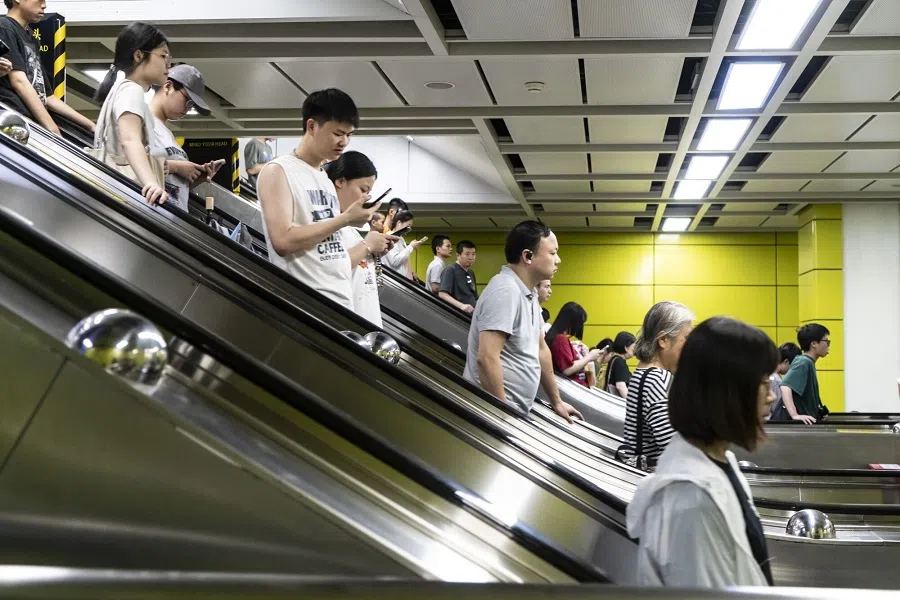
IDC’s Worldwide Quarterly Mobile Phone Tracker noted that the majority of growth in the smartphone market will be driven by Android, with a growth rate of approximately 4.8%, compared with just 0.7% for iOS.
Based on the report, Nabila Popal, research director with IDC’s Worldwide Tracker Team, pointed out that iOS’s slower growth may be due to a strong 2023 and increasing competition in the Chinese market.
However, she noted that if Apple makes a strong move around its AI strategy for iPhones, demonstrating clear use cases, it could accelerate the growth for Apple and revamp demand for iPhones in China.
Wong believes that Apple excels at consumer education, which is helpful for the rollout of its AI features. But given that ChatGPT is not available in China and Apple has yet to announce a collaboration with a Chinese AI company, this adds uncertainty to the upcoming release of the next-generation iPhone.
Whether Apple can leverage AI technology to compete with domestic phone brands and overcome the challenge of declining demand in the Chinese market will be the focal point of investors and the outside world.
This article was first published in Lianhe Zaobao as “iPhone16手机壳在深圳提前面市 但需求低迷订单骤减”.





